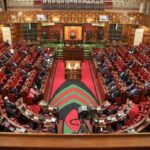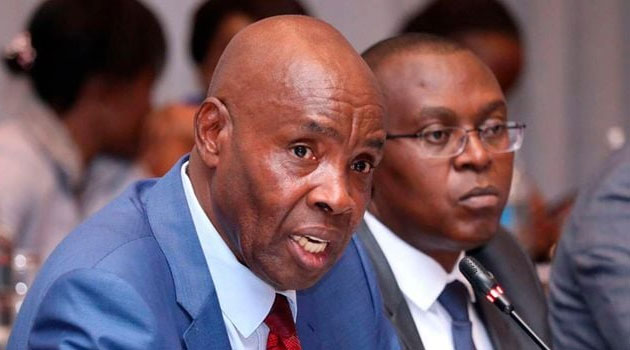Betting firms are paying out less of staked amounts to gamblers, making it harder for punters to reap from the game of chance that has turned out to be a source of income for millions of Kenyans. An analysis of data from the Betting Control and Licensing Board shows that payout ratios dipped to 72.8% or KSh43.7 billion last year from a high of 89.8% (KSh269.3 billion) in 2019.
The falling payout ratios have quickly taken away the shine from an industry that has, over the years, turned from a pastime to a source of income for millions of Kenyans seeking quick cash.
The betting stakes have also fallen in the period to KSh60 billion last year compared to a high of KSh299.7 billion in 2019.
BCLB attributes the drop in sales for the betting firms and payouts to gamblers to aggressive taxation regimes and stringent compliance enforced to cut the gambling craze.
“Because the country was progressively becoming a gambling nation, the severe compliance requirements put in place in 2019 to limit the gambling habit explains the recent trends,” the betting regulator notes.
Betting craze in Kenya has caught the attention of key State agencies, notably BCLB, the Treasury and Interior ministers, prompting the introduction of taxes and an increase of others to reduce the appeal of gambling. Sports betting is popular among the youth, with some funding their gaming addiction by taking loans from banks and digital lenders.
There have also been reports of punters committing suicide after losing all their money.
The government introduced an excise tax on betting stakes at the rate of 7.5% from 1 July, 2021. This was in addition to the 20% withholding tax on every winning bet.
Excise tax on betting stakes was further increased to 12.5% from July this year, marking the continued onslaught on gamblers.
Besides gamblers, betting firms currently pay a gross gaming revenue — turnover minus winnings paid out— at a rate of 15%. They also pay corporate tax on profits at a rate of 30%.
The ratio of payouts to gamblers dropped to 76.3% (KSh27.8 billion) in 2020 but recovered to 78.1% or KSh55.9 billion the following year.
Betting firms made KSh36.4 billion in revenues in 2020—the year when BCLB records show that the number of active gamblers dropped to 1.4 million from 2.5 million in 2018 following the introduction of the 20% withholding tax on every winning bet.
The revenues that betting firms made, however, jumped to KSh71.5 billion in 2021 before falling to KSh60 billion last year.
A drop in revenues by the betting firms deals a blow to the Kenya Revenue Authority’s efforts to raise more revenue from the industry, given the number of taxes imposed on the companies.
But despite the deliberate increase in taxation meant to discourage betting, the number of betting firms entering the Kenyan market continues to grow.
“Despite these measures, Kenya’s gambling industry continues to grow as new players and games continuously enter the market,” BCLB notes.
Some 22 new betting firms are currently licensed to operate in Kenya, out of a total of 110 firms, according to the latest list by the betting regulator.
Betting firms and gamblers are set for more taxes in yet another attempt by the government to stem the obsession.
The State-backed Gambling Control Bill of 2023 has proposed new taxes on betting firms and compulsory saving from every stake.
The Bill has proposed a gambling tax which will be charged at the rate of 15% of a betting firm’s gross gaming revenue and a further one percent monthly levy on the same revenue.
A portion of the amount to be staked will also be chopped for savings, if the Bill is adopted in the current state as the government seeks to make betting less appealing. The amount will be determined by the gambling regulator in consultation with the Interior Cabinet Secretary.
The two new taxes on betting firms will be used to set up rehabilitation centres and create awareness on the adverse effects of the gambling craze that has since turned into a source of income for unemployed Kenyans.
BCLB data shows that 65% of Kenyans gamble to win money while the remaining do it for entertainment.
Kenya is home to the highest number of youthful gamblers at 76%, placing the country ahead of Nigeria and South Africa.
The average amount that gamblers spend on stakes in a month is KSh2,500 with 80% of the punters earning less than KSh30,000 per month, according to industry data.





























